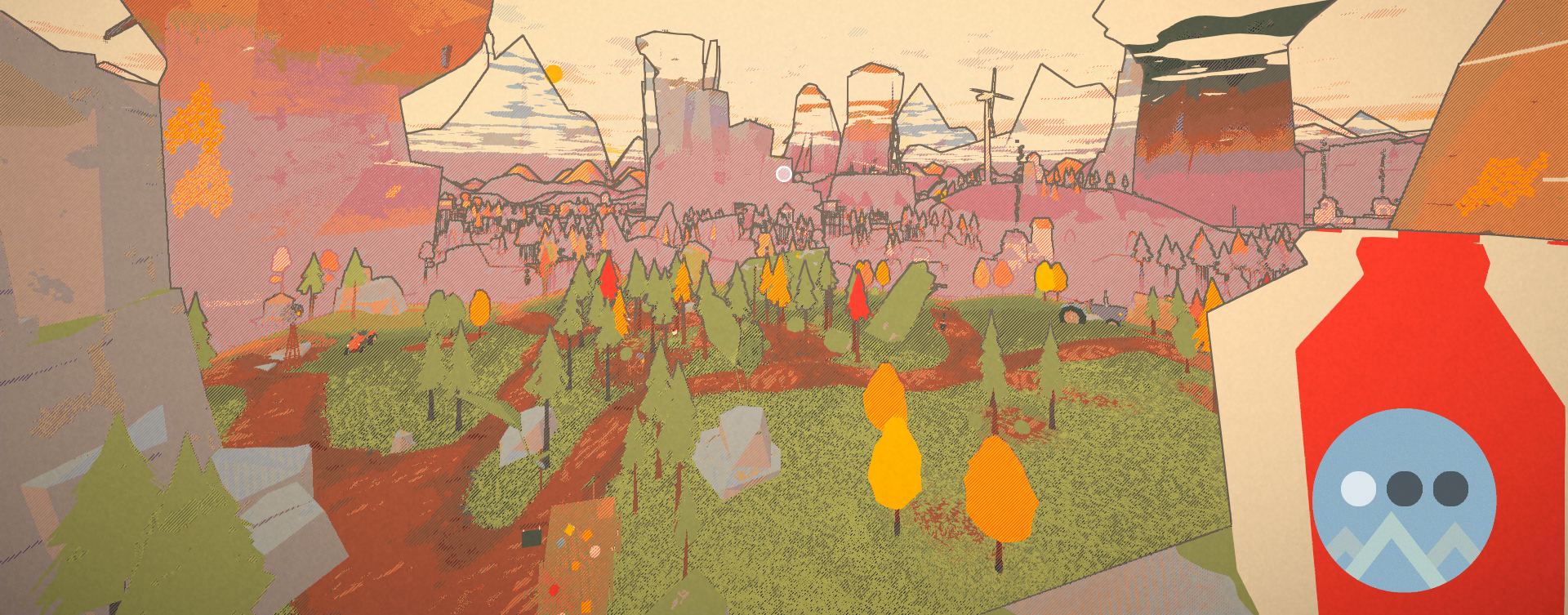
Valley Peaks Review
After about seven hours of playing, I’ve come to this conclusion: Valley Peaks is a cozy, open-world climbing game that is out to challenge all of my assumptions about games cozy games, about open-world games, even about climbing games. How challenging can a cozy game really be before it becomes un-cozy? Can developers create an open-world game that doesn’t feel fundamentally overwhelming to me? Is it possible for a climbing game to feel both intuitive and challenging? But let’s start from the beginning.
Valley Peaks is a climbing game at its core. A climbing game wrapped in a cozy, stylized, open-world package… chock full of frogs. Your identity? Frog. Your occupation? Boring big city IT job. Your task? Climb to the top of a slew of mountains and install radio transmitters. A simple concept, if delightfully bizarre.
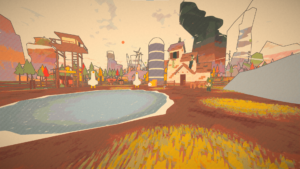
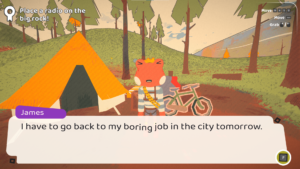
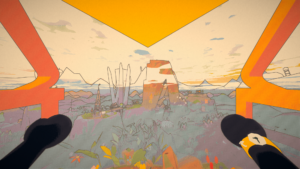
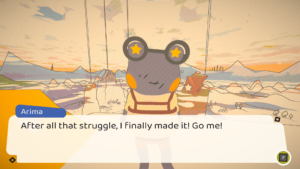
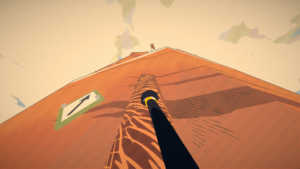
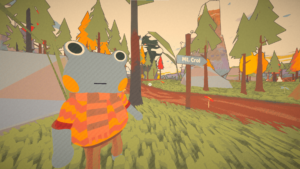
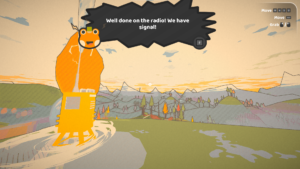
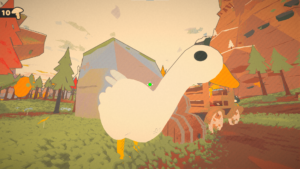
I set about playing Valley Peaks for the first time one night, frankly, feeling very unsure of how I would feel about it. While I have friends who have been looking forward to its release for a long time, I had my concerns. My primary concern was whether the first person perspective, paired with the climbing mechanics, was going to make me woozy. I was also skeptical of the climbing controls, and whether I would find them either too easy or too frustrating. It’s a cozy game, after all. I wondered how hard it could really be. But on the flipside, climbing seems like a difficult set of controls to design and execute seamlessly. I’m pleased to say within about 30 minutes my concerns were alleviated and I was hooked.
Here’s the thing: rock climbing is such a specific type of physical activity to try to simulate in a game, especially in a cozy game. We often judge game controls by how intuitive it is to do what you want to do. And, in some ways, climbing is one of the most intuitive activities to perform in real life. You see a ledge, you put your hand there. You find a foothold, you wedge your shoe in and push upwards. There are few, if any, tools (depending on what type of climbing you’re doing). But there is so much more to climbing below the surface, that can make it devilishly challenging. Climbing is by no means easy, nor is it straightforward. So often in real life climbing, the next handhold is just out of reach. You may find that your fingers begin to slip, or your footing fails you.
Someone (or perhaps many folks) on the Valley Peaks development team is clearly a climber in real-life, because they seem to have placed a great amount of intention on finding this balance of intuitiveness and challenge. Within minutes of starting up my first one-star mountain, I started to really feel that my little froggy arms, controlled with the left and right triggers of my controller, were extensions of my actual arms. Or, at least the arms that exist in my brain? I started to feel like “hey, I’m getting pretty good at this!”
Within minutes of starting up my first one-star mountain, I started to really feel that my little froggy arms were extensions of my actual arms.
Froggy hands began to seamlessly connect with craggy rocks and ledges, as I pulled myself higher and higher. Soon I had reached the summit. And what a rush getting to the top of that first mountain was! The game plays with perspective and focal point in a way that genuinely makes it feel like you are VERY high up– acrophobes, be warned! The thrill of feeling that I was beginning to master the climbing controls mixed with the beautiful soundtrack (we’ll talk more about that later) made for an instant serotonin rush.
By the second or third mountain, though, I had come down from my metaphorical and digital high and discovered that the first mountain had treated me with baby gloves. Not only did these next climbing routes– which are all extremely well labeled by difficulty, by the way– challenge my dexterity, they also challenged me to think like a climber. Yes, it was a measure of my ability to manage multiple controls simultaneously, to time my actions around precarious terrain, etc. But I also found myself checking my hand position, occasionally repositioning for better reach to the next ledge. I noticed myself standing back to assess the route above me and its potential pitfalls. I was locked into the climb.
This is where I arrive at my first question: how challenging can a cozy game be before it stops being “cozy”? The answer that Valley Peaks resoundingly gives is “very.” While the controls are well-designed and intuitive, actually putting them to use to battle some of the toughest climbing routes in the game is a doozy, make no mistake.
But I never felt the game was taunting me, I always felt like Valley Peaks wanted me to succeed. The game’s charming frog inhabitants and their quirky kindness always put me at ease. I also felt like this game’s soundtrack ALWAYS had my back. Each song is exactly what you imagine a climber must feel when they reach a pinnacle, sweating and sore, but INSPIRED. The music is hopeful, optimistic, majestic, and yet also intimate. This is a perfect climbing soundtrack and I can’t stress enough that this game wouldn’t be the same without it. All this kept me feeling positive. Plus, the open-world nature of the game meant that I never felt rushed to reach a certain summit. If a given route began to fray my nerves, I could always take a step back and go explore for a while.
That leads into my second big question: can developers create an open-world game that doesn’t feel fundamentally overwhelming to me? I know this isn’t everyone’s experience of open-world games, but it is consistently my experience. And I think Valley Peaks has done a great job of crafting a truly open-world game (you really can go anywhere and do just about anything you want at any time), that didn’t leave me with decision paralysis.
There are lots of things to do throughout the entire map, including many collectibles to find, many side quests to complete, and many froggies to befriend. While all of these are fun little side-missions, none of them felt so compelling that I felt torn between what to do at any time. And none of them felt like they overpowered or drew away from the main story mission. So, I would go take a few minutes to collect some mushrooms or buy some power-ups, but I always found myself naturally drawn back to the next mountain I wanted to climb.
Get to the point, girl
All-in-all, I am both hooked on and enchanted by Valley Peaks. This game challenged some of my fundamental assumptions about cozy games, open-worlds and climbing mechanics, and I’ve never been more pleased to be proven wrong.
Emily’s Score: 8.5/10
No Small Games was provided with a review key of Valley Peaks by thoseawesomeguys
About No Small Games
No Small Games is an indie game recap and review podcast brought to you by hosts Kate and Emily! They became friends while streaming on Twitch and bonded over their love of indie video games. In each episode of No Small Games, the two will discuss an indie game they both played independently. They’ll compare their experiences: the good, the bad, their most memorable moments of their playthroughs.
Learn more about the podcast and its hosts on the About page.


